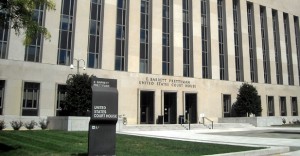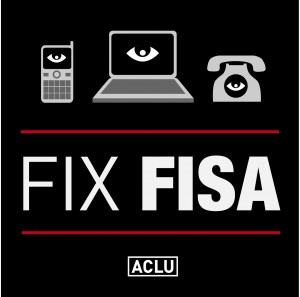By Sam Weisman
On September 17, Dickinson College welcomed Kate Martin, the president of the Center of National Security Studies, to deliver a Constitution Day address on the Bill of Rights and NSA surveillance. Her lecture discussed the relationship between liberty and security in the digital age. This timeless struggle has evolved dramatically over the course of American history but clear parallels can be drawn to threats facing the early nation. On September 11, 2001, terrorists affiliated with al-Qaeda hijacked commercial airliners, flying one into the Pentagon and another two into the World Trade Center. The horrific attacks slingshotted the United States into a new age of national security. In response, an ongoing military campaign war launched in Afghanistan and a global war on terror commenced. The conflict merged domestic and foreign relations in a way that continues to strain the relationship between security and liberty.Unlike conventional warfare, enemy combatants can blend seamlessly into civilian populations or be aided by US citizens on their mission to conduct acts of violence. When conventional means are not sufficient to secure the nation against an unconventional threat, civil liberties have been sacrificed. The most potentially dangerous effect of the NSA scandal is the declining system of checks and balances in the Foreign Intelligence Surveillance Courts (FISC). Decisions concerning civil liberties must be limited and with adequate oversight.
In a democratic republic like our own, there should be few political surprises. Transparency and the system of checks and balances should remove the possibility for national shocks like the 2013 reveal of the collection of citizen metadata by the NSA. Many have condemned the program as an intolerable infringement on 4th Amendment rights. How have we gotten here? The problems with NSA surveillance come from the unchecked FISA courts.
Picture, if you will, a closed-doors, windowless court room. A panel of district court judges appointed by the Chief Justice of the Supreme Court receives a government request from an NSA representative. The Foreign Intelligence Surveillance Court (or FISC) eagerly approves the vast majority of requests (rejecting only .0324%, or 11 out of the 33,949 since 1979) without the consent of any other branch of government. The isolated judicial decision-making body has made the unquestioned growth of NSA power possible. In her address, Martin questioned this system, “How much of the decision making can legitimately be carried out in secret, consistent with the constitutional command that democracy requires an open government?” This question is central to the age-old debate between liberty and security.
The 1790’s were a time of similar homeland insecurity. The fledgling government was threatened by infiltration. The members of the early Congress had been bribed by French officials and rogue French agents ran amok in the country, inciting dissent against the government. This diffuse threat infiltrated the population and sought to influence upcoming elections. The government feared that the population would support a French invasion. To combat the issue without directly targeting France, the Federalist Congress passed the Alien and Sedition Acts in 1798. The Alien Acts allowed the unwarranted arrest and deportation of non-citizens suspected of aiding an enemy. The Sedition Act directly impinged upon the First Amendment liberties of the American people by making the “seditious libel” of the government punishable. This was loosely defined. Without oversight or an adequate system of checks and balances, the Alien Acts were used as a partisan tool against the Republican party while the Sedition Acts restricted individual liberties.
Although it may have a place in modern security, the processes behind NSA surveillance are in dire need of reform. The FISA courts require significant reform and the oversight of an outside party. Recent amendments to FISA have moved towards Congressional updates and greater transparency. The ACLU has petitioned to institute greater FISA regulation. NSA surveillance and other security measures may be necessary to national defense. However, open government is the only way to make sure these security measures don’t go too far. The Alien and Sedition Acts can provide a historical model for security policy gone too far without oversight.
Mid-September captures the division between security and liberty in the United States. The anniversary of the 9/11 tragedy has been represented annually with Patriot Day, a solemn occasion of remembrance. Thoughts will turn to our security as a nation: how can we ensure that this never happens again? Less than a week later, Constitution Day is met with discussions about civil liberties, past and present. The fragile balance between liberty and security must be handled openly and with appropriate oversight.



Leave a Reply